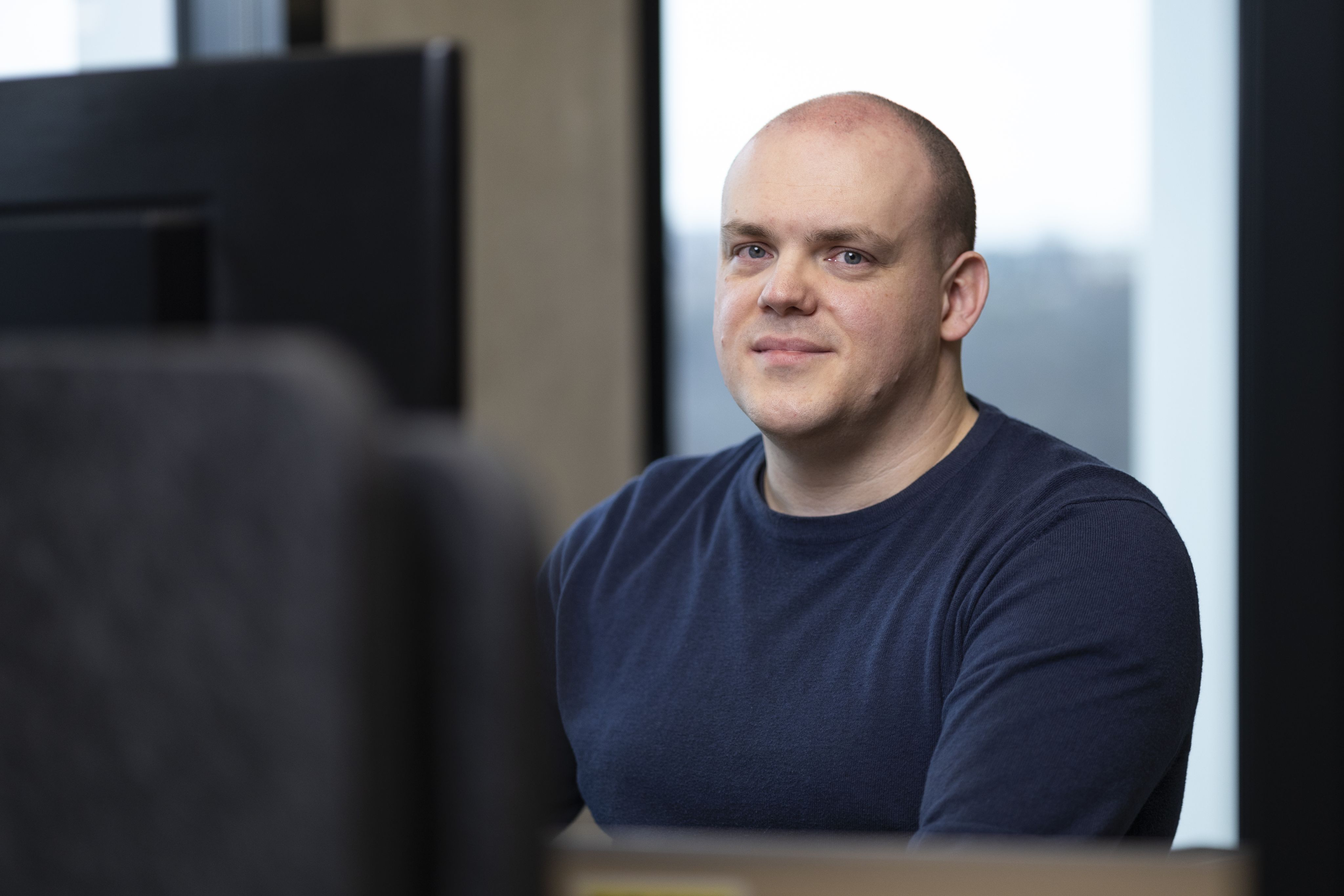FROM MEDIA TO IT? WHY NOT
“I changed careers for practical reasons, but I genuinely enjoy my new job,” says Štěpán Beneš, an ECM systems specialist.
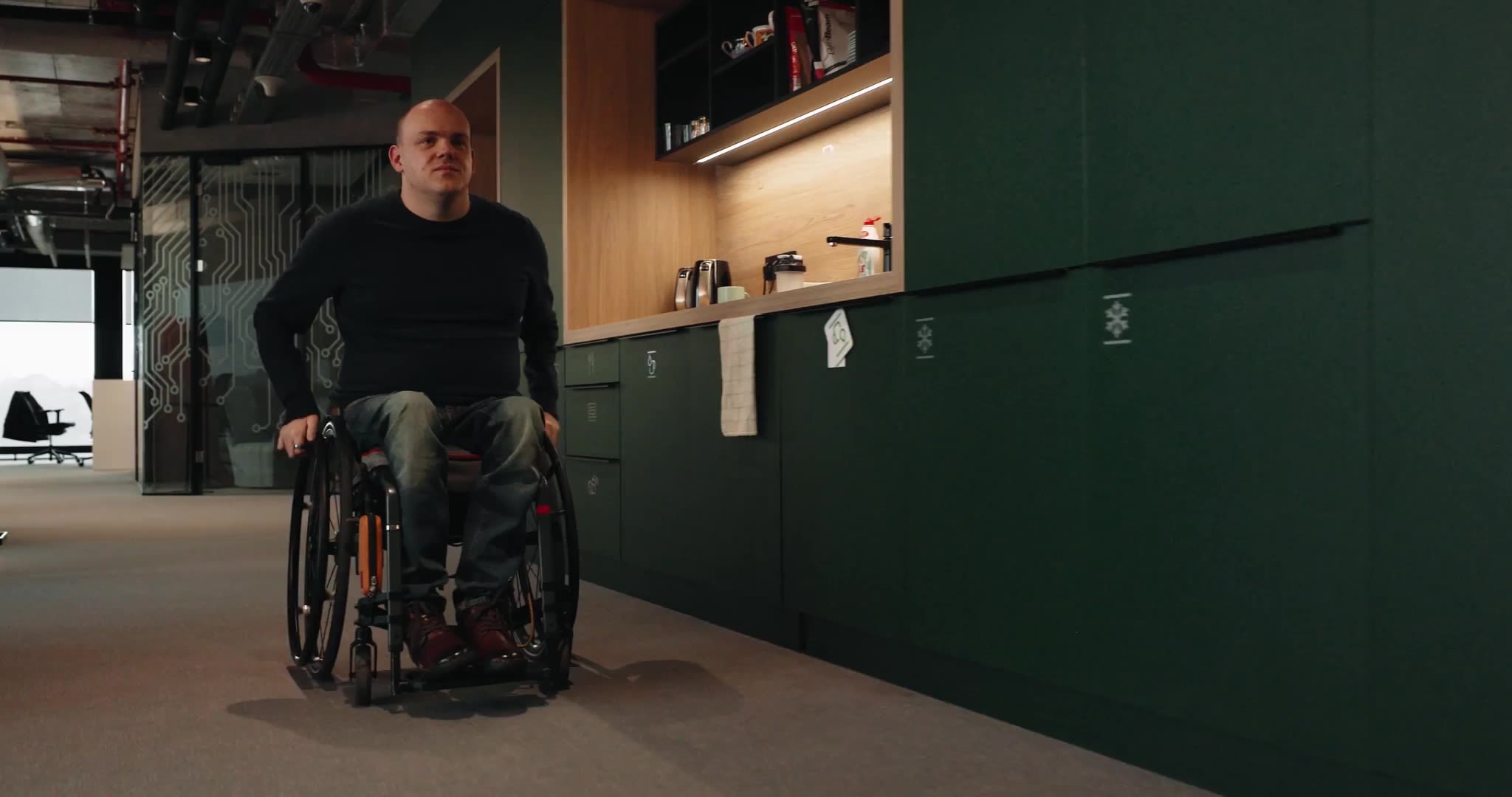
A few years ago, he was writing about technology for various magazines; today, he works with IT every day. At 39, Štěpán Beneš decided to make a major career shift, leaving the world of non-profit organizations and media to enter the field of IT. His first steps in this transition were guided by 42 Prague, an educational institution established by Škoda Auto in 2022. It emphasizes project-based learning and peer-to-peer education—a model where students learn from each other. As Štěpán himself says, studying at 42 Prague was a time investment that definitely paid off.
Your career path is quite unusual; not many people move from media to IT. How did this change come about?
I started working in media while still in school. I mainly wrote about technology and collaborated with various magazines, including Czech Business Weekly and Respekt. I also spent many years at Můžeš, a magazine published by Konto Bariéry, where I eventually worked as the editor-in-chief for eight years. I enjoyed my career in the non-profit sector, and it was enough for me – until I had children. My decision to switch fields wasn’t driven by any grand romantic notion. It was simply about wanting to work in a field that’s both promising and well-compensated.
Why did you specifically choose IT?
At first, I wanted to broaden my education. I completed an MBA with a focus on project management at EDU Effective Business School. That was the first step. Then, I considered pursuing a doctorate degree at my alma mater, the Metropolitan University in Prague – but financially, that wouldn’t have improved my situation. Besides humanities, I’ve always had an interest in IT and technology, and I’d been thinking for some time that maybe I should have taken that path when I was younger. But in the end, I had realized that I’m not sixty yet, so there’s no need to fear a career change. In fact, even at sixty, it wouldn’t be too late!
“As a child, I got my first taste of programming basics in a tech club. We learnt to work with a programming language called Karel and guided a little character around. But, of course, what excited me the most back then was that at the end of each lesson, we got to play computer games.”
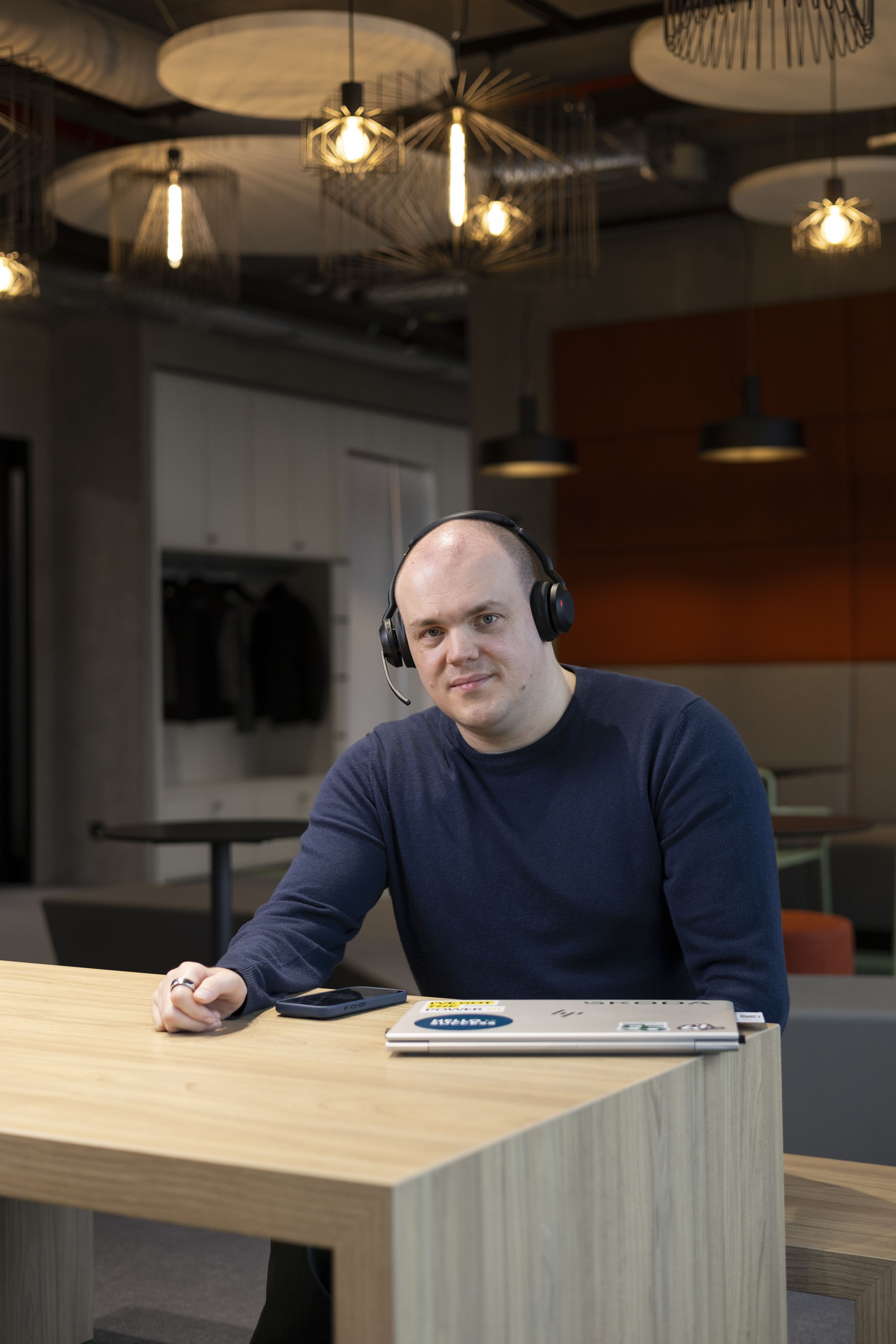
What steps did you take to redirect your path towards IT?
First, I signed up for a data analyst course. Then, I came across an online ad for 42 Prague, which promised a revolutionary, free programming education. It sounded so foreign – and intriguing! I liked that the concept was entirely different from anything I’d encountered before. I also sensed that their teaching style, which included things like peer-to-peer learning, could be an interesting way for me to step out of my comfort zone and grow personally. In the past, I got used to the model where someone lectures me, and then I work independently without discussing my progress with anyone. At 42 Prague, I immediately felt that the learning process would be something entirely different. And I became sure of that assumption during the admissions process.
What are the admissions like?
You start with the first round. For about two hours, you play games. One of them is a memory game, and the other tests your logical and algorithmic thinking. I passed that part, and before the second round, I completed the data analyst course I mentioned. Then, at 42 Prague, I faced the second stage of admissions, which lasts a full month. This phase is called the “Piscine,” which is French for “pool.” The name might make you think of an inexperienced swimmer in deep water – and that’s exactly how the second stage makes you feel.
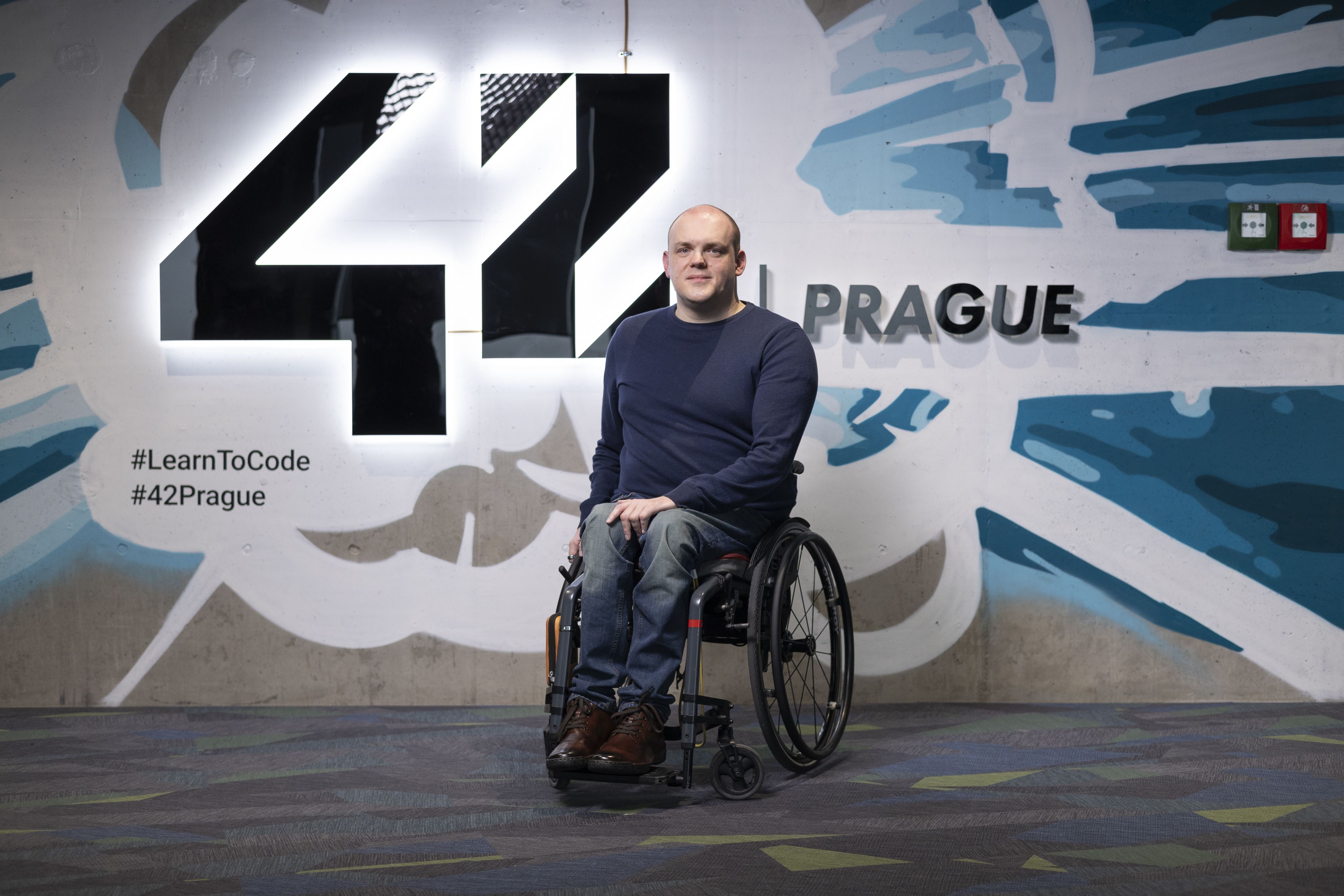
How so?
You arrive together with 150 other people, the team of 42 Prague welcomes you, gives you a project – and then you’re on your own. At that moment, you have to look around and bravely ask others, “Do you understand this? Do you know how to do it? I can handle this part, but I’m stuck on this other part. Can you help me?” It was quite a shock. On the first night, I came home and told my wife I definitely wasn’t going back the next day. But I got over the initial shock, stuck it out for the month, and it paid off. Based on the second round, I was accepted.
What was the actual learning process like?
It was pretty similar to the admissions process. You work on various projects; some you can complete on your own, while others require you to form a team. Sometimes you’re in a team with people who could easily be your friends, and other times you have to overcome various personal barriers. From the start, I was motivated by the idea that if I did everything as well and as quickly as possible, I’d be able to find a new job that meets my needs. This mindset often attracted people with a similar attitude, so most of the time, the cooperation on project work went smoothly.
"At 42 Prague, you learn within a system that’s partially gamified. You progress through different levels. For some students, this was precisely the reason they chose 42 Prague. And it was clear that they enjoyed competing to see who could earn the most achievements."
So, the teaching method differs from the traditional university model, where project-based learning isn’t very common.
Yes – but it really works. A former classmate of mine is proof of that. After finishing his studies, he landed a job at Digiteq, a company that tests and develops electrical and software systems. Their main client is Škoda Auto, so we actually work in the same building now. He told me about an interesting bit of feedback he received during his interview for a software engineer position, where he showcased some of the projects we worked on together at 42 Prague. In the theoretical part of the interview, candidates from technical universities had an edge. But when it came to the actual projects, his work stood out as highly polished and advanced. He actually outperformed the university students in this area. So, if anyone is worried that studying at 42 Prague might be a waste of time, I can personally assure them that it’s not.
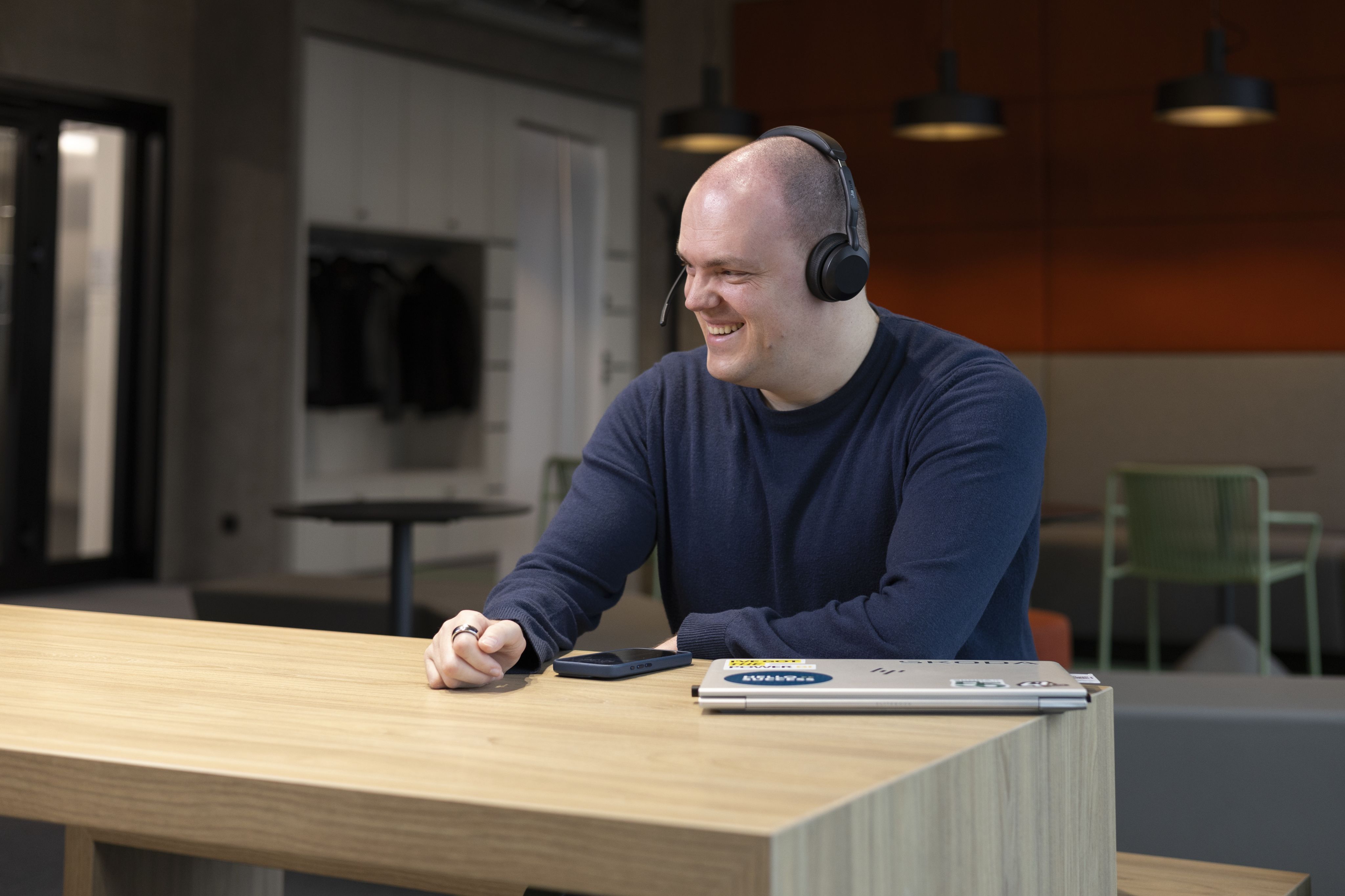

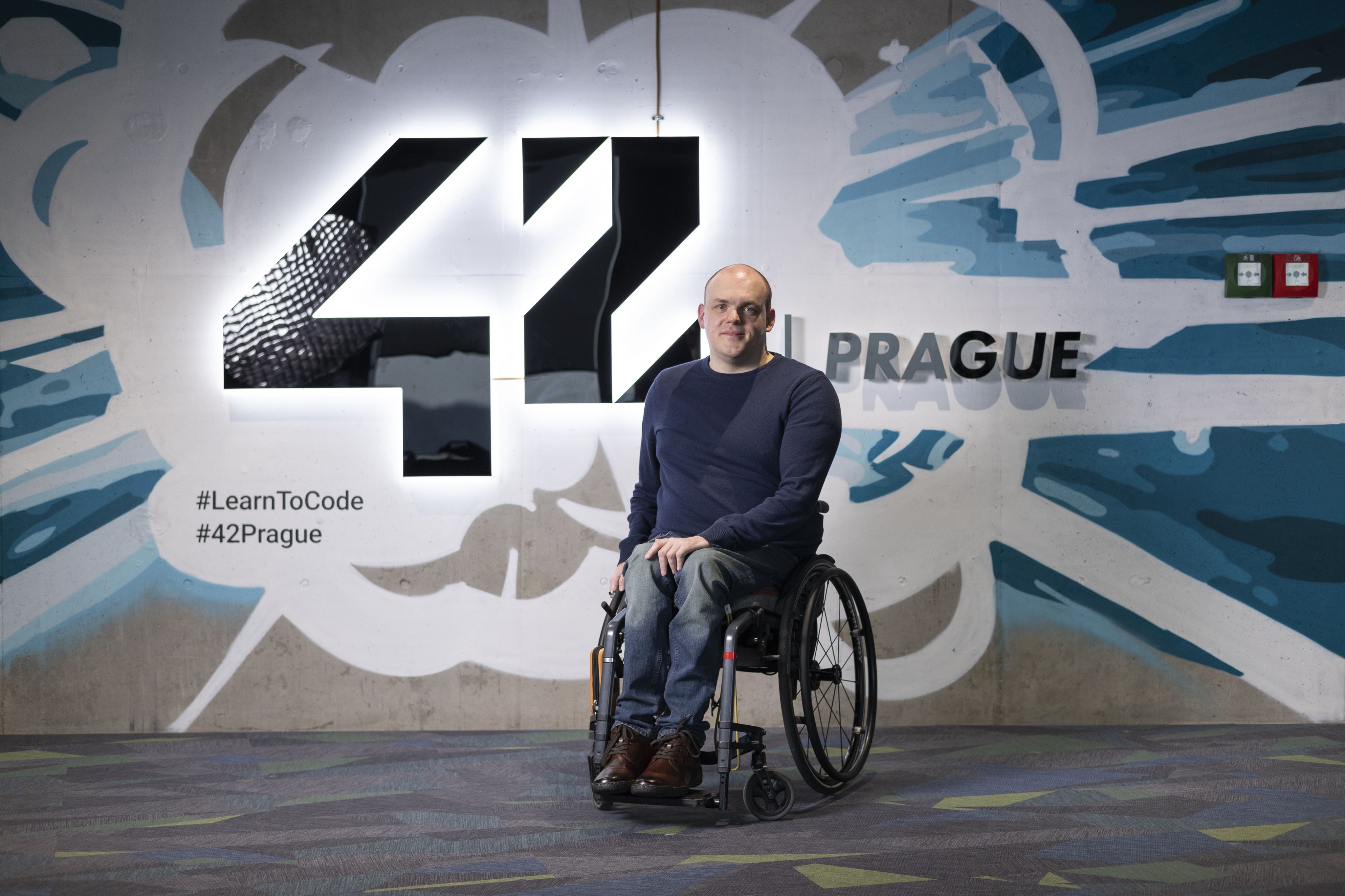
As part of the program, there’s also an opportunity for mentoring, during which an experienced IT professional helps you with skill development.
Yes, we got a mentor in the final part of the course. Škoda Auto is one of the founding partners of 42 Prague, so we had the opportunity to collaborate with experts from Škoda. I was lucky enough to be mentored by Radek Veselý, an IT manager who’d been at Škoda for as long as I’ve been alive. He had an impressive IT career and a wealth of experience.
What did your studies at 42 Prague give you?
Besides the skills I acquired, it helped me clarify the direction I want to pursue within IT. I learned programming, teamwork, and gained essential technical knowledge. But I always felt drawn to a more holistic perspective on IT. I didn’t want to end up as a programmer who stares at lines of code daily and dreads every meeting with management. I was interested in both the project and business aspects – the customers’ needs on one side and IT as a service on the other. That’s why I applied for a job at Škoda Auto. Through the mentoring I experienced at 42 Prague, I realized that Škoda was the place where I could find what I was looking for.
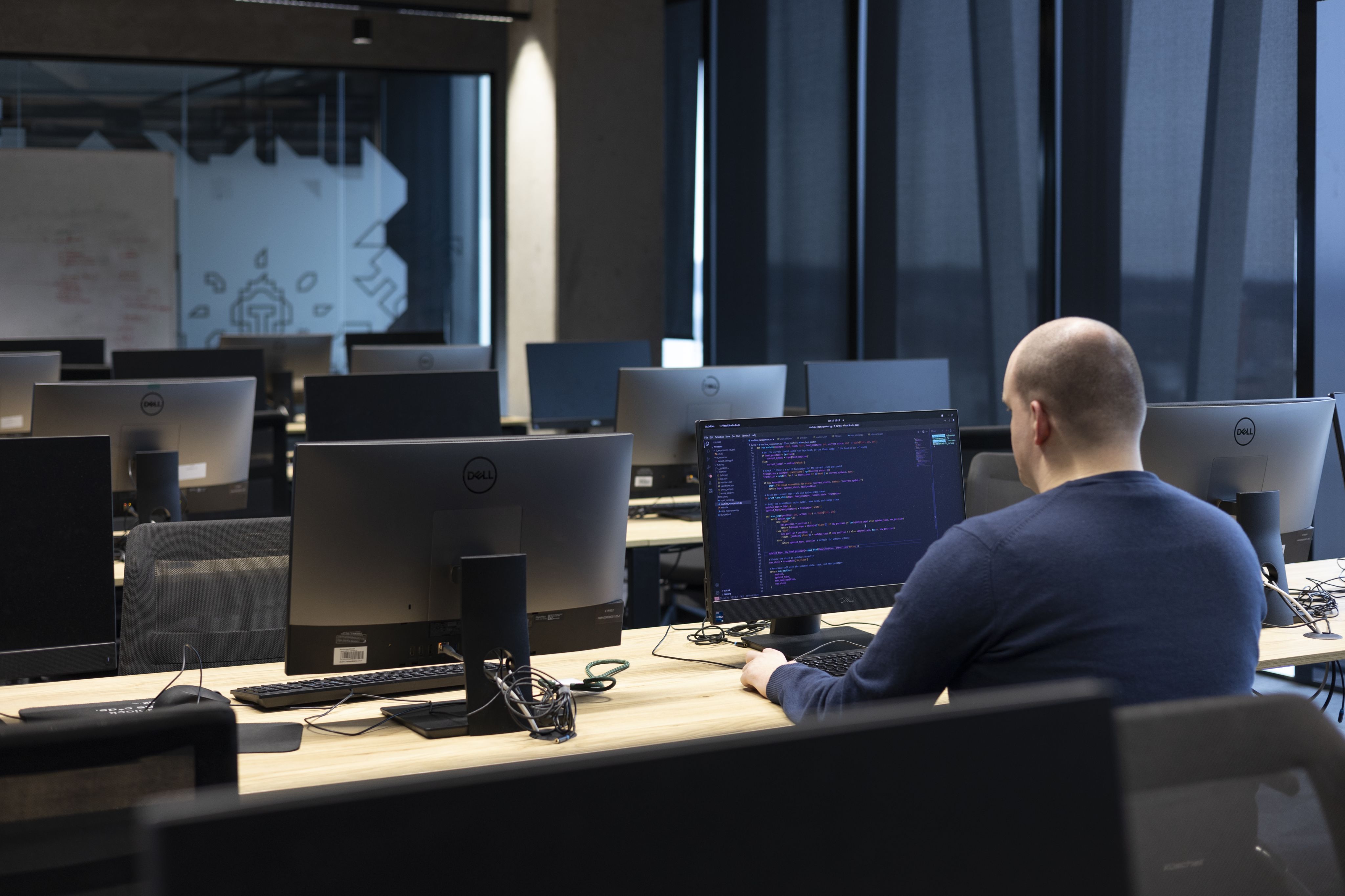
“My first close encounter with Škoda Auto was quite unconventional. I had ordered a Škoda vehicle, and then the COVID-19 pandemic hit. Naturally, I was curious about when I would get my new car and wanted to know if production was still running. I looked for these updates in Škodovácký Odborář, a magazine published by the company. At the time, I was studying project management, so I was also professionally interested in how such a large company operates during a crisis. When I eventually joined Škoda, I already had a pretty good understanding of the production line system, and knew where the different models are manufactured.”
So, did you get to the job at Škoda Auto through mentoring?
Mentoring played a key role in my decision-making process. I chose one of the open positions, applied for it, and I was given a chance. Although my supervisor saw someone without any professional IT experience, he probably also noticed that I was highly motivated. I'm glad he ultimately decided to give working with me a try.
Has Škoda met your expectations?
So far, absolutely. I joined a team that works with ECM – Enterprise Content Management – systems and started working on an international project called Hello Success. This project is essentially about digitalizing HR processes. Together with my colleagues, we work on document storage within the system – in technical terms, the DMS, or document management system. From the start, I’ve been lucky enough to have a fantastic supervisor and teammates.
What does a typical workday look like for you now?
My main responsibility is managing the system I mentioned. In the morning, I start up the environment where the system operates, monitor how everything is functioning, and gather statistical data from the results. Then, I usually have meetings, ranging from internal team check-ins to consultations with other teams within the group, including colleagues from Germany, Portugal, and India. In these meetings, we discuss the current state and progress of the project. Meanwhile, we continue working on the system itself. I also handle data analysis and work in JIRA, a project management software.
"I feel that Škoda genuinely values its employees. Right from the start, I was told that if I wasn’t satisfied in my current position, I should speak up, and we could explore alternative options, maybe in another department. The managers here understand that if someone is working on something they’re passionate about, they’ll be that much more valuable to the entire company."
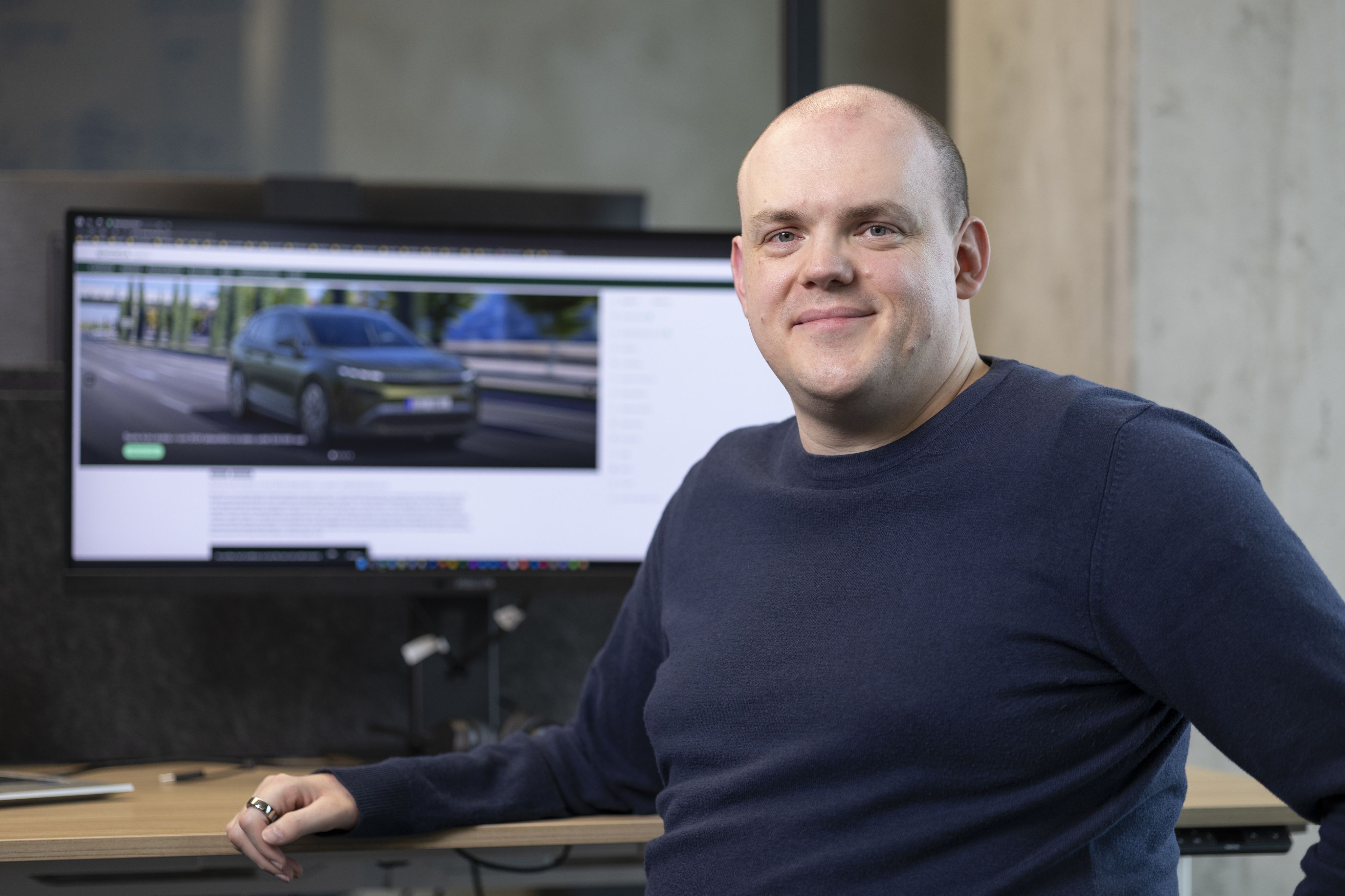
It sounds like you achieved your goal of regularly interacting with colleagues rather than just sitting behind a computer.
I was also pleased to find how non-toxic the company culture is. People often hear all kinds of things about corporate life, which creates certain expectations that can be quite negative. I told myself that I’d tolerate a lot for the sake of a new job, but in the end, I didn’t have to tolerate anything. I was pleasantly surprised by the company culture and work atmosphere here. Even during the interview, I asked about opportunities for further development and education, and I received full support in that regard.
ŠTĚPÁN BENEŠ
ECM Systems Specialist
Štěpán studied at the Metropolitan University in Prague, focusing on international relations and European studies. “Back in university, we used to joke that our field was basically built on reading newspapers. And I eventually found work as an editor in media,” he explains. He spent a total of 15 years in the media industry. However, for practical reasons, he decided to change professions, seeking better financial prospects. He improved his education by earning an MBA in project management. He also completed a data analyst course, and finally studied at the non-profit educational institute 42 Prague. These steps led him to start a new career in IT. Today, he has been working at Škoda Auto for over a year as an IT specialist focused on ECM (Enterprise Content Management) systems. He is currently working on implementing a new group-wide HR system as part of the Hello Success project.
Štěpán spends most of his free time with his family; he has two young children. For many years, he was also active in wheelchair curling, even competing on the Czech national team. “Sport was an important part of my life, but I recently decided to step back from professional curling. I was reaching my limits and felt it was time to make space for younger players.” But despite leaving his curling career behind, Štěpán isn’t really looking for any new hobbies. “I’ve always been lucky enough to enjoy my work. I never sat in the office counting down the minutes until I could leave. That hasn’t changed. Working at Škoda is still something new for me, and for now, I genuinely enjoy being able to fully dedicate myself to the job,” he concludes.
